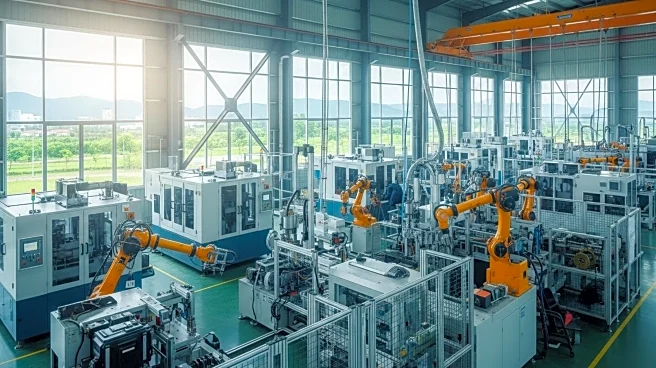What is the story about?
What's Happening?
Berkshire Hathaway's subsidiary, Marmon Fastener Company, is set to lease a 6,000-square-meter factory in Dong Nai Province, Vietnam. This move marks Marmon Holdings' first investment in Vietnam, aimed at manufacturing screws for the North American market. The decision follows two years of research to identify the optimal location, according to Steve Semmler, chairman of Marmon Holdings. The leased facility will enable the company to leverage Vietnam's skilled labor, stable investment environment, and competitive costs, thereby enhancing its global manufacturing capacity and diversifying its supply chain beyond North America.
Why It's Important?
The expansion into Vietnam by Marmon Holdings signifies growing confidence among American investors in Vietnam as a key manufacturing hub within Asia's supply chain. This strategic move is expected to bolster Vietnam's position in the global industrial real estate market, which has seen a surge in demand for high-quality factory spaces. The country's advantages in cost, human resources, and strategic location make it an attractive destination for global corporations seeking to expand operations in Southeast Asia. Marmon Holdings' investment is a testament to Vietnam's potential to become a pivotal player in the global supply chain landscape.
What's Next?
As Marmon Holdings establishes its manufacturing operations in Vietnam, it is likely to contribute to the country's industrial growth and attract further investments from other global corporations. The expansion may also prompt other companies to consider Vietnam as a viable option for diversifying their supply chains. Additionally, the increased demand for premium factory space could lead to further development in Vietnam's industrial real estate sector, potentially driving economic growth and job creation in the region.
Beyond the Headlines
The decision by Marmon Holdings to lease a factory in Vietnam reflects broader trends in global supply chain strategies, where companies are increasingly seeking to mitigate risks by diversifying their manufacturing bases. This move could have long-term implications for the balance of manufacturing power in Asia, as Vietnam continues to position itself as a competitive alternative to traditional manufacturing giants like China.















